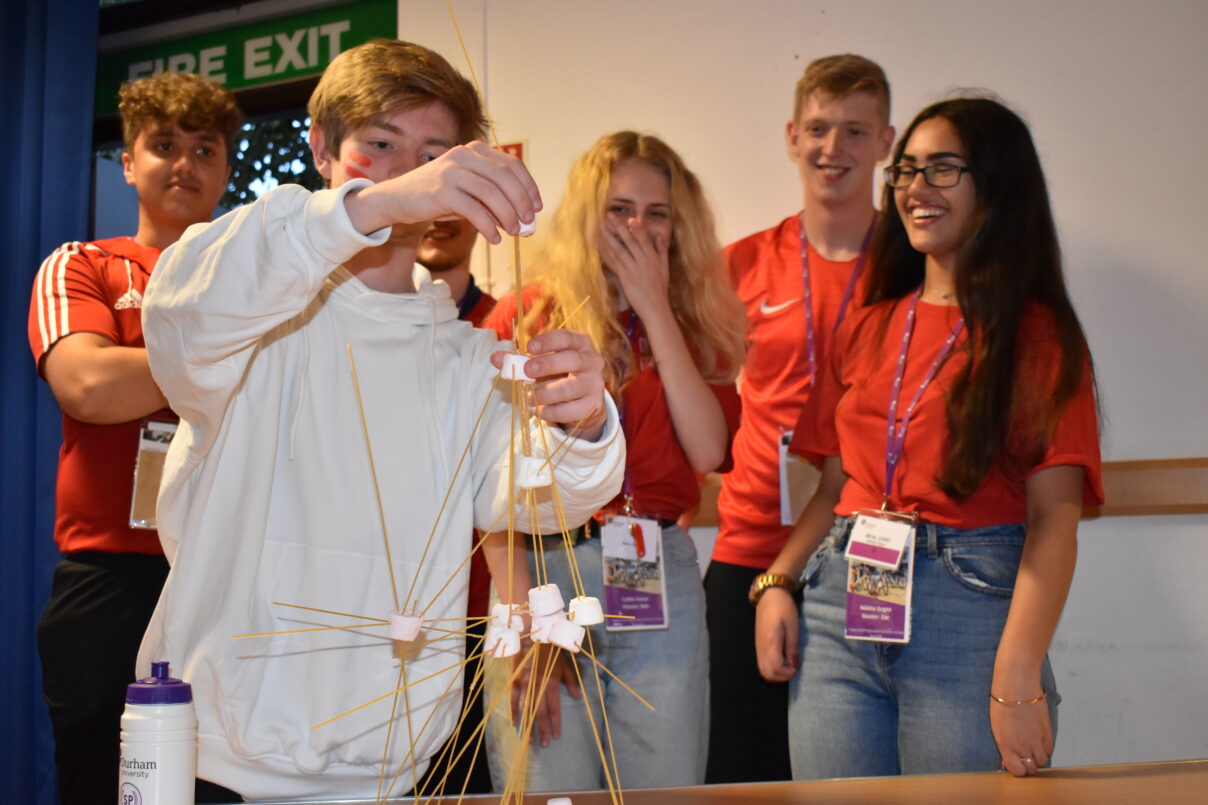Access programmes at Durham
Have you ever wanted to know more about access programmes at Durham? Becca Duckworth, a Graduate Ambassador working on the planning and delivery of Supported Progression (one of Durham’s access schemes) explains more.

What is an Access scheme?
An access scheme is a programme designed to help young people access higher education, bridging the gap between school/college and university. They’re designed to help students gain lived experience of life as a university student and offer support throughout the application process. The aim is that, by the end of our programmes, prospective students will feel confident to make an informed decision about their future.
Durham runs several access programmes for year 12 students, including Supported Progression, STEP, and Sutton Trust. Acceptance onto the programmes is based on a variety of eligibility criteria (information of which can be found on each programme’s webpage). Our programmes aim to reach students currently underrepresented at Durham and help them to explore university (and Durham) as an option for their next steps.
What does the Supported Progression programme involve?
Supported Progression is made up of several components. For successful applicants, this means that their engagement with the programme spans the latter half of Year 12 and into Year 13.
This year, the programme began with online and in-person hybrid welcome day events. These events introduced students and their parents/guardians to the programme, Durham, and staff and student ambassadors.
We’ve just completed our three-day spring residential at Grey College, and now look forward to our summer series of online webinars between May and July.
This will be followed by our Summer residential, where the students return to Durham for a longer, more immersive visit. As students move into year 13, our autumn webinar series and email correspondence maintain the element of support as university applications begin.
Residentials
The residential components of Supported Progression, STEP, and Sutton Trust aim to provide students with a taste of university life in a supported setting. Students live in one of our colleges, participate in academic tasters across the university, and try real university sports and societies.
As a graduate ambassador, my main responsibilities when planning for Supported Progression are the social activities. In the past, these have included formal dinners, silent discos, sports sessions (like rowing, fencing, and ultimate frisbee), society tasters (like debating, theatre, and British Sign Language), mentor group challenges and games, and optional evening activities.
On the Supported Progression summer residential (having completed taster sessions on spring residential), students also follow a schedule of academic lessons. This includes independent study in which students complete a piece of independent assessed work which allows them to access their guaranteed contextual offer to Durham (more on this later!). The aim of this is to mirror typical university student experience, with academic study in the day, and a choice of society-style and college activities in the evening.
The benefits of Access schemes for students
As well as seeing first-hand what it’s like to live, study, and socialise in a university setting, our programmes are designed to equip students with an array of skills (both social and academic) that will support their progression into Year 13 and beyond.
In participating in academic taster sessions, students gain confidence sharing ideas in an academic setting. Independent study encourages students to develop organisation skills, focus, and time management, as well as develop their academic writing.
For many students, these residentials are their first experience of staying away from home. For others, it may be their first time in a university setting or their first time visiting Durham. Our programmes help students build up a sense of resilience and self-belief in their abilities to thrive in an unfamiliar setting. Residentials are an opportunity to try something completely new which are often out of their comfort zone. From a staff perspective, it’s been incredible to see the students’ enthusiasm for the social activities I plan (especially when the first activity of the residential is Taskmaster inspired!).
Contextual offer
On successful completion of one of our access schemes, students will also receive a guaranteed conditional and contextual offer to study at Durham! This is typically two grades lower than the normal entry requirement (for example, if the normal entry requirement was AAA, then the contextual offer would be ABB).
Students still need to apply to university as normal through UCAS and must still achieve the asking grades of the contextual offer in the relevant subjects.
Reflections after spring residential
As I’m writing this in April 2023, I have just worked my first residential in the Access and Engagement Team. I was seriously impressed by how engaged all the students were and how willing they were to try new activities, socialise, and make new friends. It was amazing to watch students become more confident as the residential progressed.
Find out more
- Read more about the Supported Progression programme
- Find out about the Space to Explore Potential (STEP) programme
- Find out about the Sutton Trust Summer School programme
- Explore the Access and Engagement web pages
- Learn more about contextual offers
- Explore our student blogs to read more about what studying and living at Durham is like
- If you’re interested in sharing your experience, find out how to submit a blog or vlog
